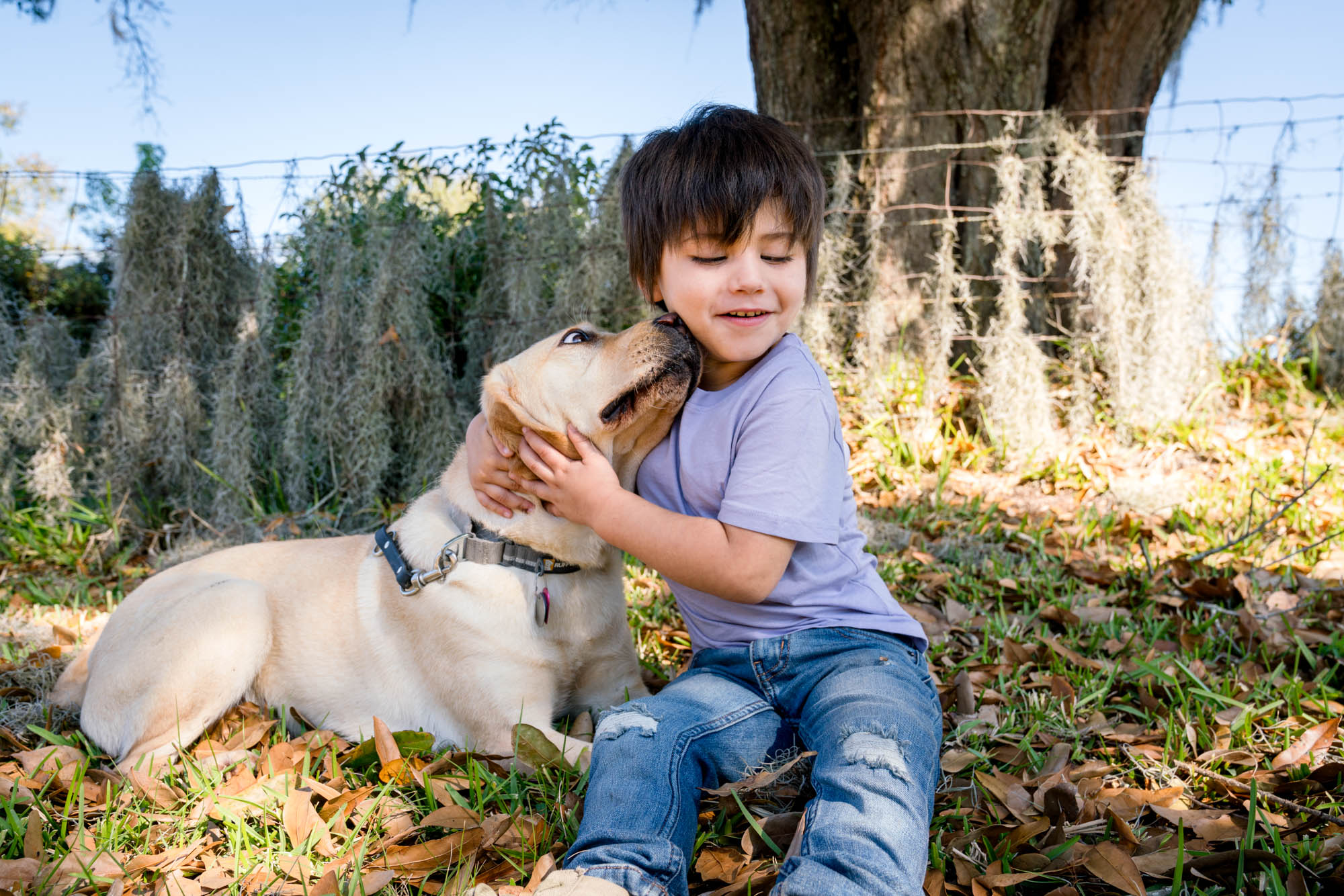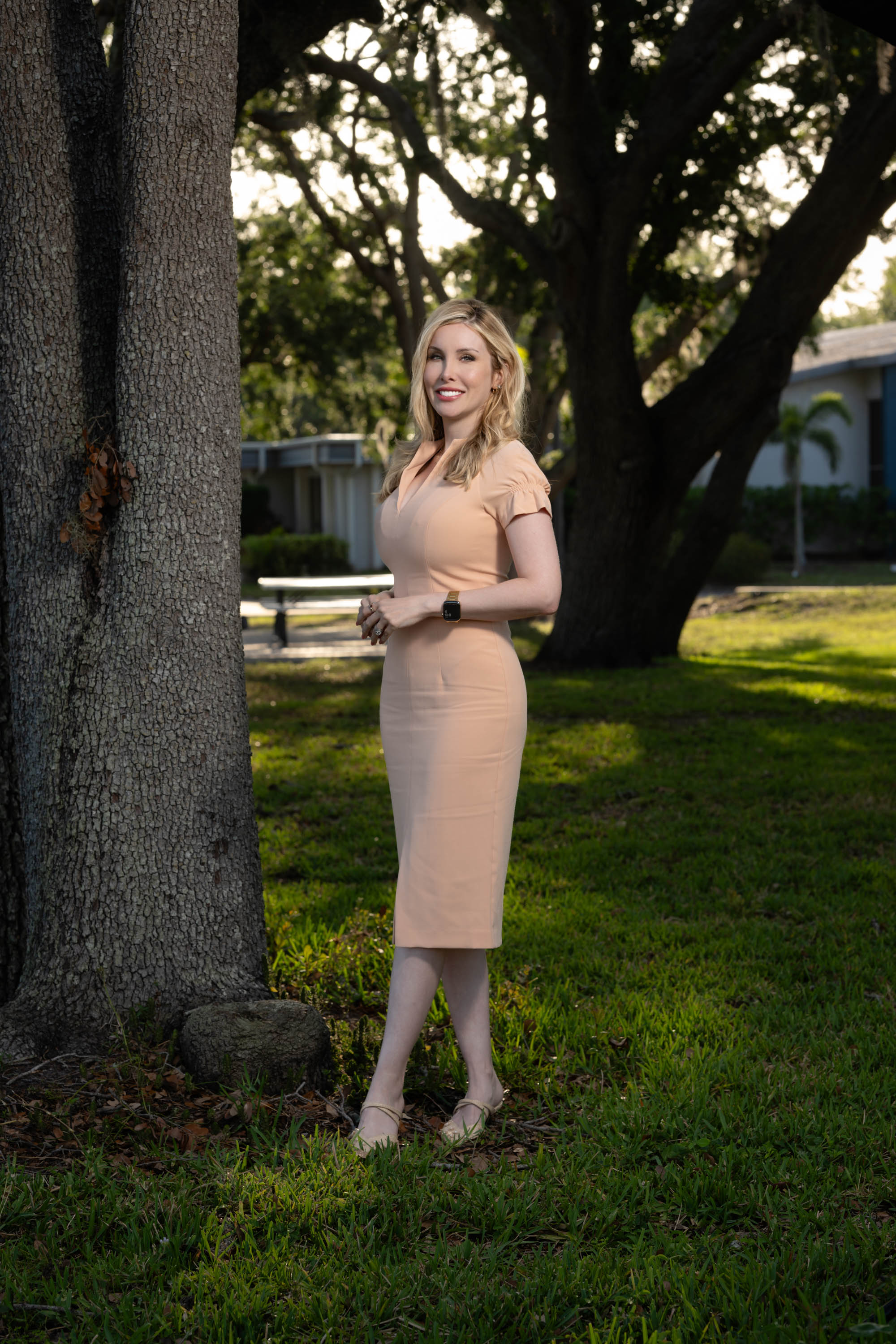It’s no secret that Sarasota is a philanthropic community with many organizations and individuals involved in charitable giving. Our philanthropy partners, however, often offer a wealth of services that extend far beyond traditional grantmaking and many of these hidden gems remain under the radar for most people. The nonprofit groups covered in this feature are working to create more meaningful, long-lasting change in our region.
Harvest House
“Harvest House is a place to rebuild. We meet people where they are, straight from incarceration or homelessness, and surround them with support,” shares Vice President of Advancement Harvest House, Katie McCurry. “We give them the tools and steps to get back into society with confidence.” Founded in 1992 by Pastors Jim and Peggy Minor, fueled by their deep awareness of a critical need for support in their community, Harvest House started with just six beds. Over the years, the organization has grown exponentially, expanding to ten campuses and providing hope, care and transformation to thousands. The dedicated team of professionals at Harvest House is driven by compassion and the belief that everyone deserves a chance at a better future.
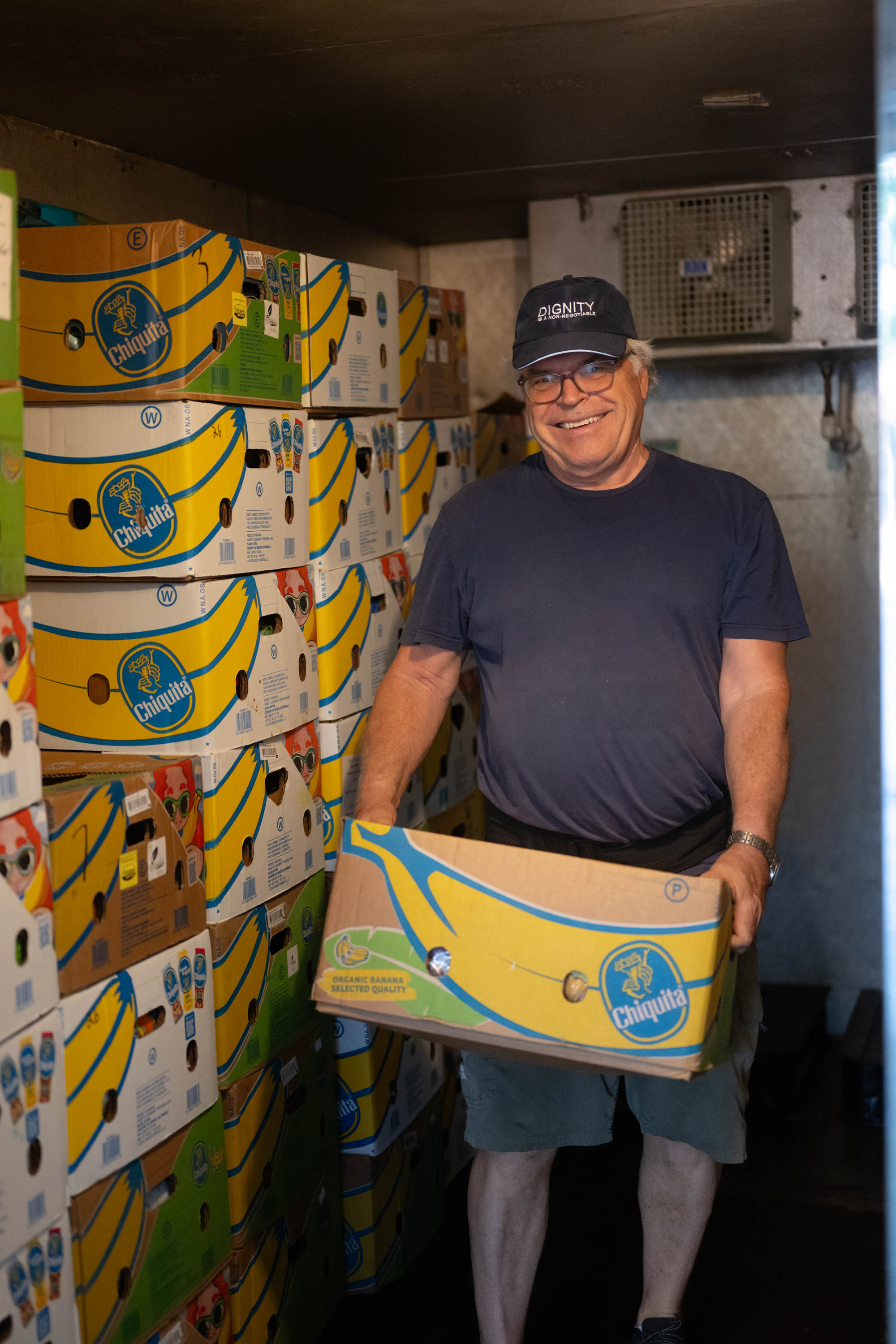
While many people are familiar with Harvest House’s work in alleviating hunger (they work closely with All Faiths Food Bank) and offering affordable housing, fewer are aware of the organization’s vital addiction recovery program. This program has been instrumental in helping individuals rebuild their lives and break the cycle of addiction. In fact, the addiction recovery initiative is where the organization’s journey began over 30 years ago.
“Our Freedom Program is a model between a halfway house and a traditional treatment program,” explains McCurry. “We provide case workers and have wraparound services such as mental health counseling, addiction education classes and financial literacy. We also offer several other classes tailored to the needs of each individual.” These services aim to address the complex issues that people face, giving them the support they need to reintegrate into society with confidence. The program can last up to six months, after which participants move into graduate housing, where they can stay for as long as necessary to continue their journey to stability. “It’s gradual—sometimes people need that extra hand at every level to find the stability to make it out in the world,” McCurry adds.
One of the most significant programs that Harvest House offers is called Home Again, a supportive housing solution that spans across three campuses. This program serves 108 parents and children on any given night, providing families with access to affordable housing while also offering critical social services. Home Again offers a lifeline to participants who are required to refrain from drug and alcohol use while in the program. They also participate in life-skills classes that prepare them for a brighter future.
“It’s only for families, and it often involves individuals escaping abuse or challenging circumstances,” shares McCurry. “We get many referrals from the police, often finding women living in their cars with their children, struggling to make ends meet. They come to us, and we provide them with therapy and wraparound services, including free childcare and scholarships for education, as long as they stay sober.” This comprehensive approach not only helps families overcome immediate crises but also sets them on a path toward lasting stability and self-sufficiency.
The impact of Harvest House’s programs is profound. “Over 90% of our recovery clients move into stable housing when they leave us, and a year later, the majority are still housed and thriving,” McCurry proudly shares. “Those aren’t just numbers to us. It’s lives that are changed and families who are reunited.” This success is a testament to the unwavering commitment of Harvest House to restore hope and provide a future for those who need it most. Through its addiction recovery services, affordable housing solutions and holistic approach to support, Harvest House continues to be a beacon of hope, helping individuals and families rebuild their lives and regain their independence.
To learn more visit harvesthousecenters.org
Dogs Inc.
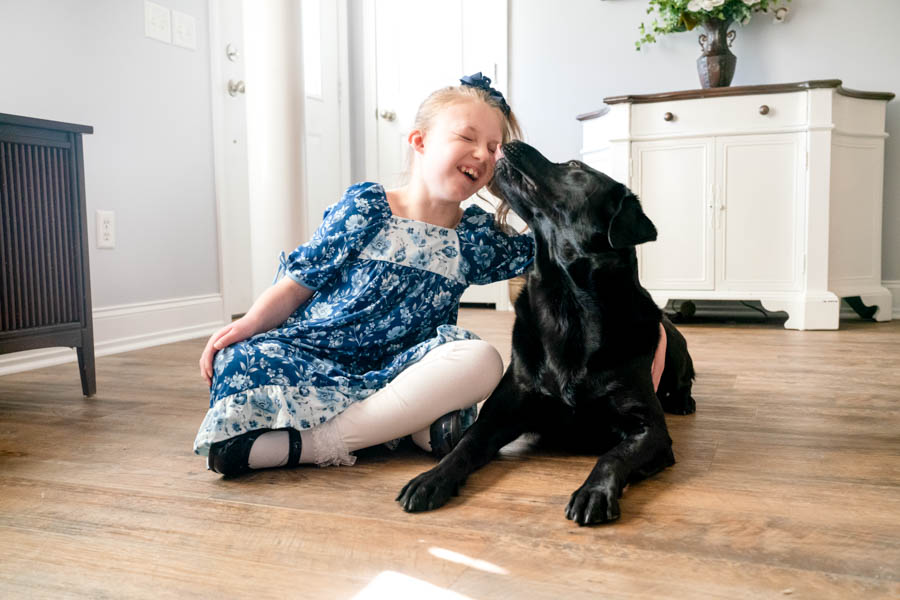
Dogs Inc. is a trusted provider of guide and service dogs for people with vision loss and veterans in our region. However, most people don’t think of children as being born with vision loss, those who face unexpected diagnoses later in life, or those who experience life-changing accidents that result in visual impairment. Unfortunately, these incidents do happen. Dogs Inc. has responded to these needs by creating the Skilled Companion Dog Program. This program places specially trained dogs into the lives of children, offering companionship and support as they navigate the challenges of vision loss.
Partnering with a guide dog requires commitment and responsibility, and for children, there is much to learn. The Skilled Companion Dog Program provides dogs that serve as loyal companions and teachers, helping kids build confidence as they learn to care for their furry friend. Through tasks such as feeding, grooming, walking and playing, children develop a sense of responsibility and maturity—important lessons that prepare them for the possibility of one day working with a guide dog of their own.
Madison, a 12-year-old girl living with ocular albinism, a rare genetic disorder affecting the pigmentation of the eyes, is one of the children benefiting from the program. Her mother, Florence, is excited about the positive impact Carol, a skilled companion dog, has had on her daughter’s life. “Madison was the baby of the family, but now, Carol is,” Florence explains. “Her calmness helps keep Madison calm. She also gives Madison responsibility and an awareness beyond herself and her own needs.”
Each skilled companion dog is carefully selected and matched to ensure the right fit for both the dog and the child’s personality. These dogs are healthy, well-trained and socialized, beginning their training just days after birth. Over nearly two years, they master essential commands like sit, stay, come, down, place and leave it. They also learn to walk with children using a tandem leash, allowing the children to walk independently while being guided or supervised by a parent or guardian. Their gentle nature and tolerance for handling ensure they’re well-suited for children with vision loss. Currently, over 50 Dogs Inc. skilled companion dogs are matched with children across the country, offering unwavering support as they navigate life with visual impairment.
Jace, who lost his sight in a sledding accident at five years old, is another child benefiting from a skilled companion dog. His mom, Carmen, shares how Bentley has made a big difference. “Jace is no longer scared that something else will happen to him. Since we welcomed Bentley, that all changed. Her energy completely matches Jace’s personality; she’s just what we needed.”
For Becca, a 12-year-old girl who lost her sight at age eight due to Turner syndrome, having a companion dog has transformed her life. “With Rockwell, I am not as scared as I once was,” she says. “Now I enjoy living my life with my blindness. If I had one wish, it would be for me and Rockwell to be together forever. He has been such a blessing and has helped me in so many ways.”
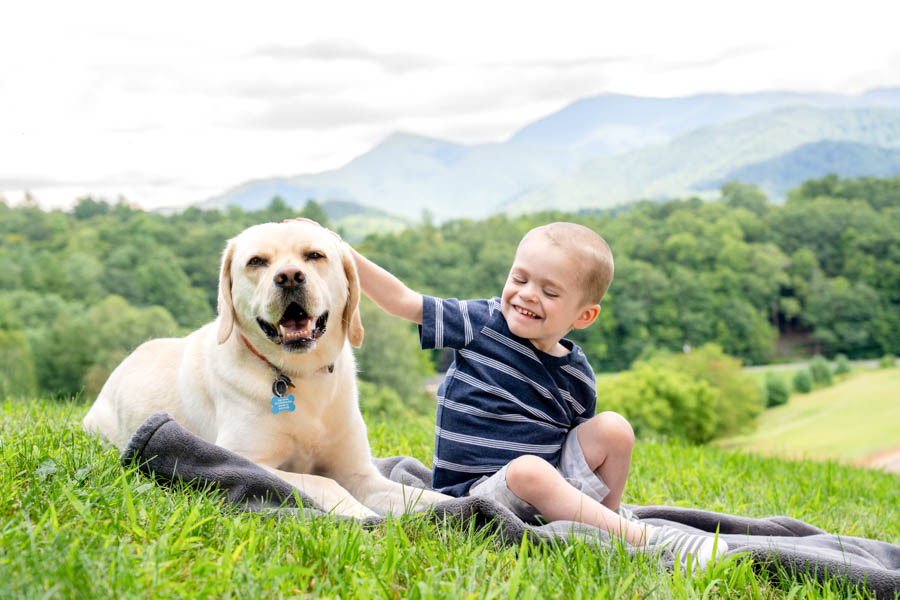
Camden, who lost his vision after a brain tumor pressed on his optic nerve, is also part of the program. His dad, Austin, explains their hopes for Camden’s future: “We want to prepare Camden for the future, so at the appropriate time, if he has the interest and ability necessary, he can have a guide dog of his own.” For now, Camden’s companion dog, Zinger, provides comfort and support as he navigates life with vision loss.
To learn more visit dogsinc.org
Mission Cataract
For the surgeons and staff members at Center for Sight, the mission of “Bringing Clear Vision to Life” is at the heart of everything they do. Working tirelessly to provide not only exceptional eye care but also to foster meaningful relationships with their patients, they help people lead more enjoyable lives. As part of this mission, every year, the center hosts Mission Cataract, a special event where skilled surgeons offer free cataract surgeries to individuals without health insurance or the financial means to pay for the procedure. David W. Shoemaker, M.D., laser Cataract surgeon, founder and director of Cataract & Lens Replacement Surgery at Center For Sight felt that no one should succumb to a life of blindness due to a treatable condition. That’s why he established Center For Sight as a Mission Cataract partner over 30 years ago. For three decades, Center For Sight has performed thousands of free cataract surgeries. The surgeries are performed for people living in Southwest Florida and across the nation. Recently, Center For Sight partnered with the ASCRS Foundation and Operation Sight to expand their reach and provide this sight-saving service to even more individuals in need.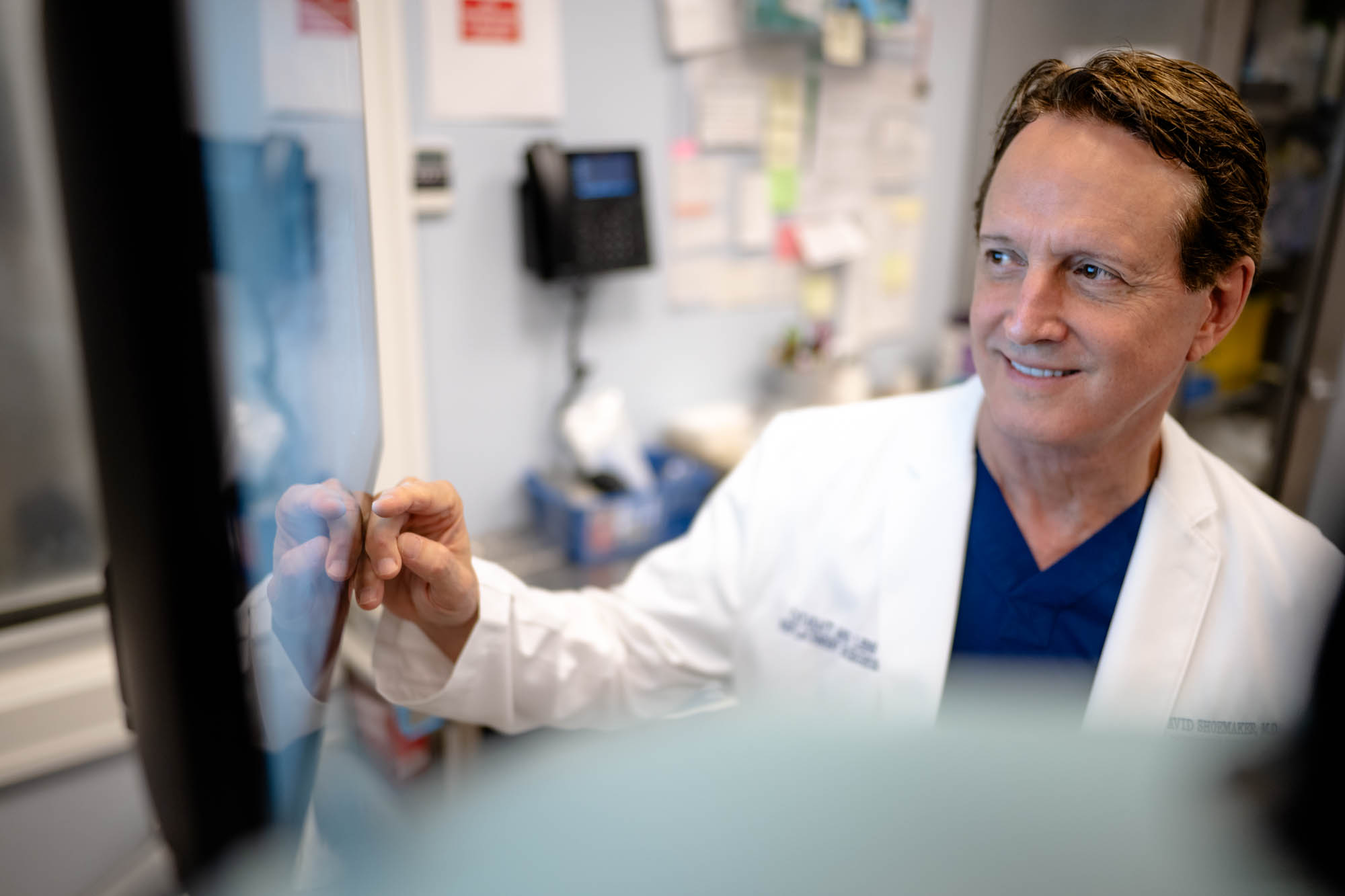
To ensure ongoing funding for Mission Cataract, Dr. Shoemaker established the Center For Sight Foundation in 2012, a donor-advised fund maintained by the Gulf Coast Community Foundation. The Foundation’s primary initiative is to support Mission Cataract. The mission of the Center For Sight Foundation is to see beyond the financial circumstances of those in need and to deliver sight-saving surgery so that no one suffers visual loss due to a surgically treatable condition. Cataracts, a common part of the aging process, develop slowly over time, clouding the lens of the eye and leading to diminished vision, including loss of color perception and difficulty reading or driving at night. Surgery involves removing the clouded lens and replacing it with an artificial intraocular lens, restoring patients’ ability to see clearly and regain the vision they once had.
“Mission Cataract is our way of catching the people who would otherwise fall through the cracks of the healthcare system,” says Dr. Shoemaker. “It is as rewarding to all of us at Center For Sight as it is for the thousands of patients who have had their sight, and their lives restored. It is a privilege to be able to provide this care to those in need.”
One patient, Jamori Fox, a 26-year-old from Canton, GA, traveled to Sarasota for surgery after debilitating cataracts left him unable to continue his job as a driver. “I’m trying not to get emotional, but I truly appreciate what you’re doing for people who don’t have the income,” Fox says. “The world is hard out here. I’m grateful for what you do for those less fortunate.” His heartfelt gratitude speaks to the powerful impact of Mission Cataract, which gives people like Jamori a chance at a brighter future.
For Heather Gordan, a 55-year-old server who has been struggling with vision loss, the inability to read due to her cataracts had been a constant source of frustration. “I am a server and don’t have insurance. It’s been tough. This place has been a blessing,” Heather shares. Her story reflects how Mission Cataract provides more than just vision—it offers a way back to cherished hobbies and a better quality of life. Now, with her vision restored, Heather looks forward to reading once again, catching up on the time she had lost. Similarly, Cheryl Von Deck, a 64-year-old caregiver, shares how her vision loss affected not just her, but the loved ones she cares for. “I am a caregiver for someone who cannot drive. I can’t drive either, and we’ve had to miss appointments. I can’t wait to see again. I am so excited,” she says. Cheryl’s story highlights the ripple effect of cataracts, where vision loss can impact entire families. But through Mission Cataract, she now has the hope of regaining her independence—and with it, the ability to care for others more effectively. Each year, through Mission Cataract, the Center for Sight demonstrates its unwavering commitment to improving lives through exceptional care. They truly bring clear vision—and hope—into the lives of their patients.
For more information on Mission Cataract, visit gulfcoastcf.org/center-sight-foundation
Bridge A Life
Bridge A Life believes that while not everyone is called to be a foster or adoptive parent, everyone can support children from hard places. Founded by Danny and Ann Marie Jones, who began their own foster care journey years ago, the organization provides hope and support to vulnerable children and families. Danny and Ann Marie shared their experience with others, highlighting the need for safe homes for kids. Their efforts sparked interest, leading many to become foster or adoptive parents. With the support of the Manatee County Foundation, Bridge A Life has grown, benefiting from training and resources provided by nonprofit leaders in our region. Executive Director Jody Jester, the organization’s first staff hire, appreciates the strong community connections with churches, businesses and other nonprofits. “We still offer many of the same programs that Danny and Ann Marie did years ago, including meal delivery, home improvement projects and trauma-informed training,” says Jester. “Trauma-informed training programs are crucial because childhood trauma can significantly affect a child’s development, behavior and relationships and caregivers need specialized training to address the challenges that arise from trauma.”
Bridge A Life supports children from birth to age 18 and beyond, extending help to youth aging out of the foster care system. “The children Danny and Ann Marie worked with are now teenagers and young adults,” Jester explains. “As these youth transition, our support can continue beyond 18.” Jester, a foster parent and adopter herself, emphasizes that not everyone is called to foster or adopt, but everyone can contribute in some way. Whether it’s delivering a meal, helping with home repairs, offering childcare or assisting with training events, there are many ways to get involved. The organization’s website lists various volunteer opportunities, encouraging people to help in creative and meaningful ways.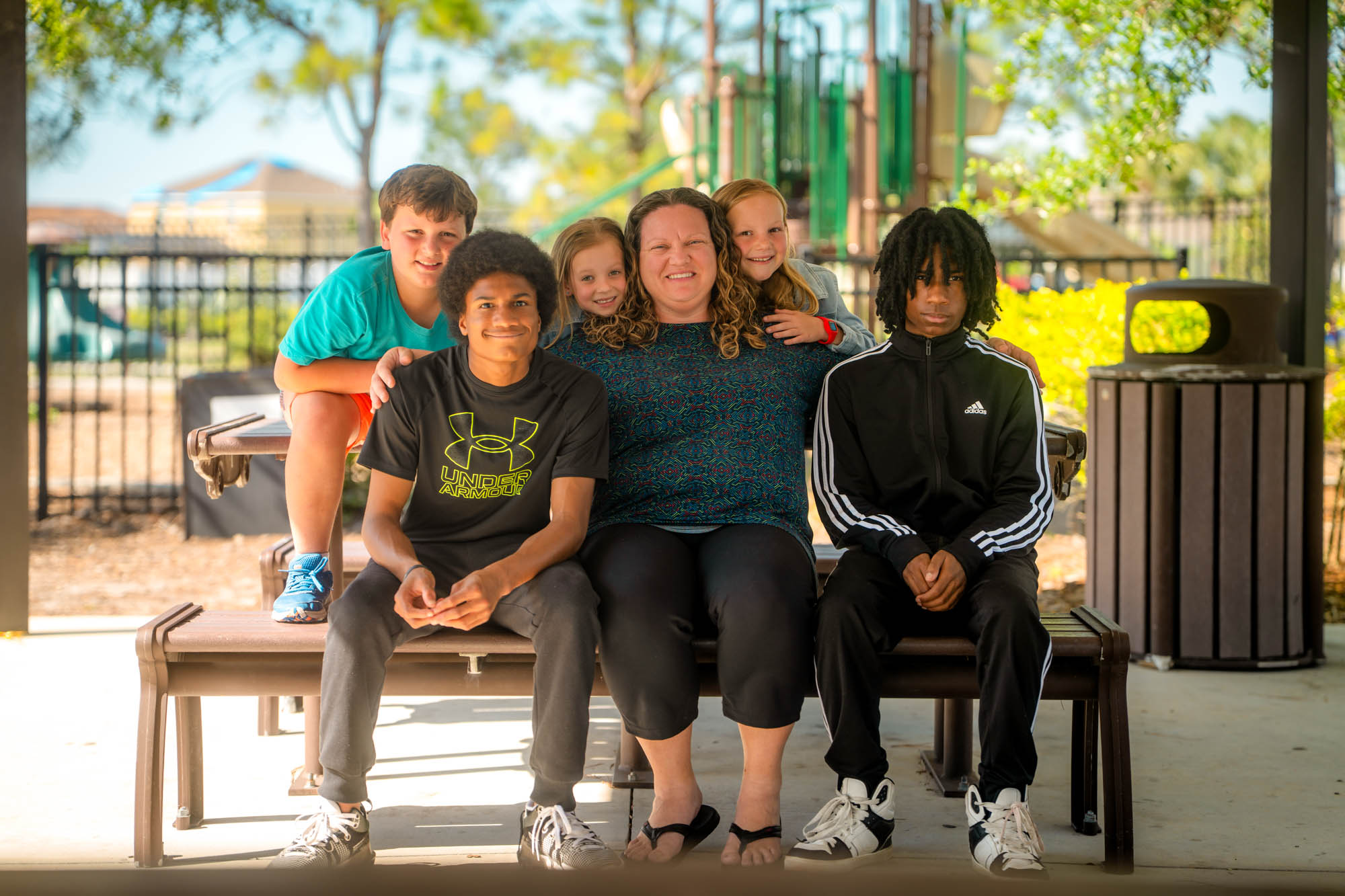
One of the key events Bridge A Life hosts is the Superhero 5K, a foster care awareness race at Nathan Benderson Park. The race features a visual display of every child currently in foster care, with their names written in colorful chalk along the start/finish line. Participants run in honor of a specific child, and many foster and adoptive families participate. At the event, one family shared a heartwarming moment: two foster children marked through their names on the track, as their adoption was finalized the following week. Another poignant story was of a mother who attended the race, having worked hard to reunify with her children. Her story symbolizes the success of reunification efforts, which Bridge A Life celebrates just as much as adoption. “It was such a gift to see both successful reunifications and adoptions at the same event,” Jester reflects. “It shows the full range of support we provide, and it’s powerful to witness these stories of hope and healing.”
To learn more visit:.bridgealife.com
Tree Fort Productions
Tree Fort Productions is a place where people of all ages can explore the performing arts in a safe, supportive environment. Founded by Katherine Michelle Tanner, this 501(c)(3) organization is a welcoming space for aspiring artists in Sarasota, Manatee County and beyond. But Tree Fort’s mission goes beyond just theater. In addition to its studio training program—offering classes in acting, singing, dancing, film and even fitness—the organization offers a wide array of unique programs. From sound baths to music therapy, Tree Fort fosters creativity and healing in its students.
One of their standout initiatives is their summer camps, which blend both typical and neurodiverse children in an inclusive environment. These camps are open to all youth, creating a special space where all children can explore the arts. “We want to offer these experiences to everyone, no matter their background,” says Tanner. Tree Fort’s commitment to helping underprivileged youth can also be seen in its scholarship programs, which provide financial assistance for students between high school and college. “There’s a gap that many students fall into between high school and college, and we want to help bridge that gap,” Tanner says. As Tree Fort grows, so does its reach. With programs for youth, teens, adults and seniors, the company is dedicated to serving all generations. They collaborate with eight local nonprofits, including Resilient Retreat and Parkinson Place, creating programs that go beyond performance and tap into healing, wellness and community support.
The performing arts programming at Tree Fort focuses on classic, original and modern works. “We’re one of the few companies that pushes to do all types of programming—film, theater, pop-up workshops—while contributing to the broader community,” explains Tanner, noting that she strives to perform four adult mainstage shows each season, as well as two original kids’ productions. “We focus on writing for children in a way that allows every kid to grow. Instead of just having one lead character in a show, we create stories where every child has a chance to shine at their own level.”
Two and a half years ago, when Tree Fort first became a nonprofit, Tanner sought ways to connect with the community. “We wanted to find support systems,” she said, “and the Community Foundation of Sarasota County was introduced to us at one of our very first performances. Since then, we’ve had the pleasure of continuing to work with them and other donors, which has been invaluable.” Still, Tree Fort relies on support from the community. Donations can be made directly on the website by clicking the “Become a Donor” tab. “We also have quite a few capacities for volunteering and it’s always growing,” adds Tanner. “There are summer types of opportunities for our Summer Sizzler series and also for our main stage which usually hovers between September and the end of March. We always need help with costumes, building sets and phone calls—and as a volunteer, of course, one of the perks is getting to see our great shows.”
To learn more visit treefortproductions.com
The Academy at Glengary
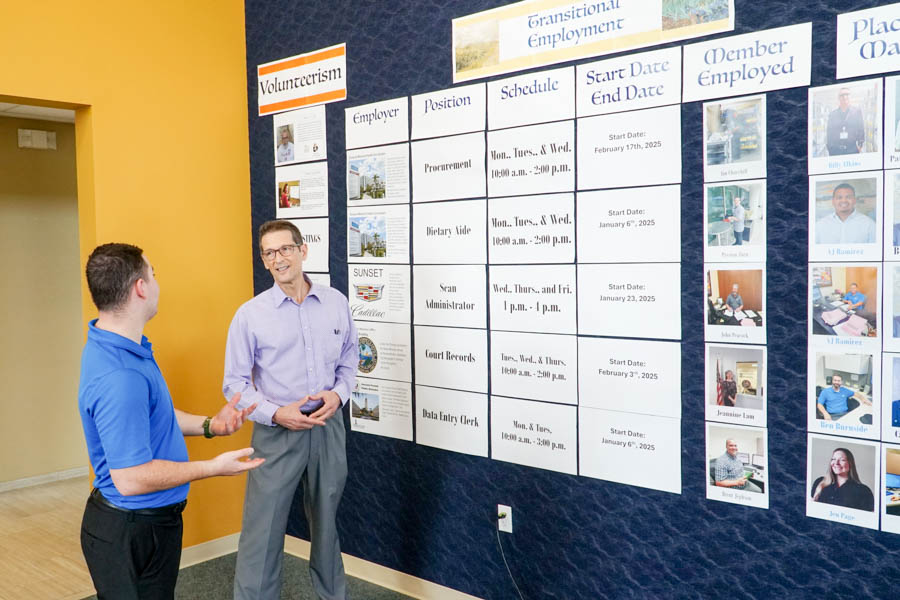
The Academy at Glengary is a vibrant community dedicated to helping individuals develop skills, build friendships, prioritize wellness and explore employment opportunities, all while working toward personal dreams and goals. Director William McKeever, who has been with the organization since its inception in 2015, previously worked in rehabilitation counseling for people with disabilities. When the Academy was founded, 23 community leaders, including Sheriff Knight and Public Defender Larry Eger, joined forces to create a service designed to complement clinical care for mental health, providing an opportunity for individuals to learn new skills and reintegrate into society. The service targets people ages 18 and up with conditions like schizophrenia, bipolar disorder, major depression and PTSD, offering additional support without replacing their clinical treatment. The Academy opened its doors in 2017, offering vocational activities and a space for individuals to develop personal goals related to mental health and wellness. Members typically attend four hours a day, two to three days a week, though some engage in full-time participation. The Academy offers three main vocational areas: culinary and hospitality (operating like a small restaurant), arts and communications (handling newsletters and multimedia projects), and business and technology. McKeever emphasizes the intentionality behind the Academy’s approach. “We didn’t want to create just a safe space; we aimed to build a place with high expectations and real opportunities for members to engage in educational, vocational or social goals,” he says. The Academy fosters a community where members can set self-directed goals and choose their level of participation. The national unemployment rate for people with serious mental illness is 85-90%, and many are diagnosed in their late teens or early 20s, resulting in prolonged disengagement from mainstream society. McKeever views the Academy as a stepping stone to reintegrating into society. Many members hope to enter the workforce within one to two years, and the Academy partners with local employers to help place members in full- and part-time jobs. “It’s exciting when our members reenter the workforce and begin building a mainstream life,” he says. In addition to vocational training, the Academy offers support in physical wellness, nutrition and financial wellness. Members do not pay for services but are encouraged to contribute financially if possible. A significant portion of funding comes from the state of Florida, with additional support from foundations, individuals and corporations. The Academy also opened a new location, the Academy of Bradenton, in April 2024, funded in part by Manatee County.
To learn more, visit academysrq.org.
Holiday House SRQ
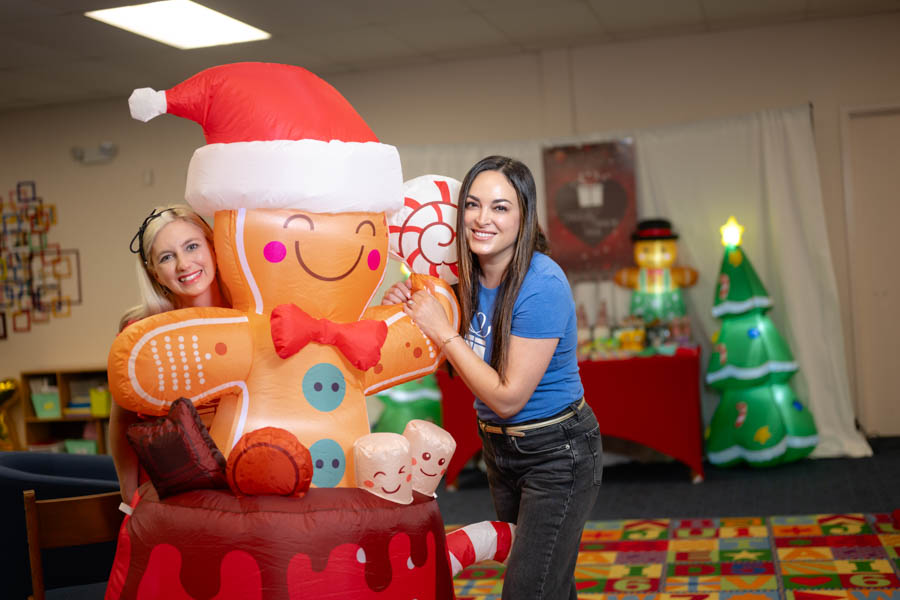
Holiday House SRQ is a non-profit organization dedicated to creating memorable holiday experiences for children in Title 1 Schools. Many of these children lack the opportunity to enjoy typical holiday traditions, so the organization transforms classrooms into winter wonderlands, allowing students to shop for gifts for their loved ones at no cost. In 2024, Holiday House SRQ served 2,000 children across four schools: Alta Vista, Brentwood, Emma E. Booker and Wilkinson Elementary. In addition to holiday gifts, the organization provides essential resources such as new sneakers and other essential items. Founded in 2021 by Jenny Infanti and Sepi Ackerman, Holiday House SRQ began with a successful event at Emma E. Booker Elementary and has since expanded to serve more schools. By fostering a sense of giving, compassion and community, Holiday House SRQ ensures every child experiences the joy of the season, regardless of their background. “After we held our first event at Booker, which was a huge success, we started learning more about the Title 1 schools,” shares Infanti. “I don’t think either of us fully appreciated exactly how much they are lacking in resources and how many of them there are. Thirteen of our traditional 24 elementary schools in Sarasota County qualify, so if you do the math, that means way more than half of the kids in elementary school are living at or below the poverty line.” Once a year, Infanti and Ackerman create a holiday house at each school they serve. “It happens to be pretty magical,” says Infanti. “We take a classroom or a space inside of a school and we transform it into a winter wonderland. We have Christmas lights, there’s music, there’s inflatables, there’s decor—all to make it feel not like you’re at school, you’re kind of walking into Santa’s workshop. Within the holiday shop, there are tables set up and each student identifies five people in their life that they want to shop for.” 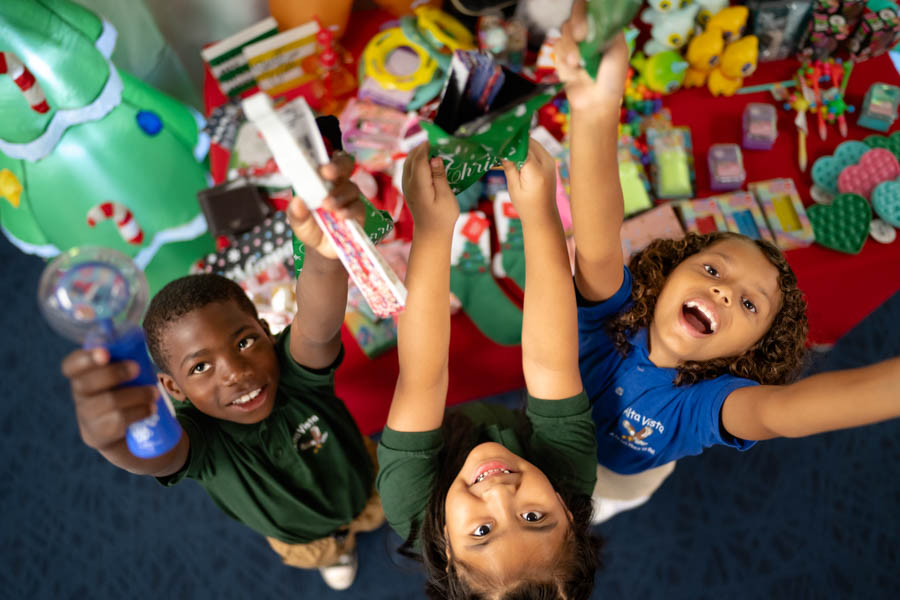
“This is one of the rare and few opportunities that the kids will probably experience that gives them empowerment. It really makes them feel like they’re the ones that are in control and in charge and they’re the ones picking the gifts,” adds Ackerman. While most of the magic occurs during the holiday season, Ackerman notes that it involves 365 days of preparation. “Holiday House is just the gateway to really understanding deeper needs. I think the school board has realized that we’ve established a connection and we’ve built trust. They come to us when there’s a need—they know we’ll do our best to help.” Holiday House recently held a shoe drive at Alta Vista, providing free sneakers to every student. “One of the kids showed up with no sneakers on his feet, so this is an actual need,” says Ackerman. The organization relies on over 200 volunteers to support events like these throughout the year. In addition to the volunteers and support from organizations like the Junior League and Community Foundation of Sarasota County, Infanti and Ackerman are grateful for the involvement of their own children who actually serve on their Board. “The kids we serve really identify when they see another child. It’s just instant comfort,” says Ackerman. “As for our children, I think it gives them not only a real sense of what’s happening in our community but it makes them grateful. We want them to feel a sense of ownership of it too so that as they grow and mature, they understand the importance of giving back to their community.”
To learn more visit holidayhousesrq.org
SYC Cares
When people think of the historic yet modern Sarasota Yacht Club (SYC) located inside Big Pass on the Gulf, they probably think about sailing, not philanthropy. SYC Cares, the philanthropic arm of the Sarasota Yacht Club has been around since 2017 and works with a mission to support the community through donations, service and projects. Part of the Community Foundation of Sarasota County, SYC Cares provides grants to local nonprofits such as Boys & Girls Clubs of Sarasota and DeSoto Counties, Child Protection Center, Pines of Sarasota, JFCS and All Faiths Food Bank.
“In 2017, the board of directors developed their first strategic plan, which included seven goals, one of which was to position the club as a positive community member. Recognizing that some may not view a yacht club this way, we adopted the mantra Making Membership Matter by Connecting Club and Community. We formed a committee to bring this vision to life,” explains Philanthropy and Special Projects Director of SYC, Stephania Feltz. “We partnered with the Community Foundation of Sarasota County and identified key priorities for our members.”
SYC Cares is made up of all types of members—from former rock stars to Fortune 500 CEOs—and most have taken up the mantra of connecting with the community, bringing their passions with them from their various specialties. Since its inception, the organization has grown to become a 501c3 corporation and has recently donated its millionth dollar in Feltz’s history.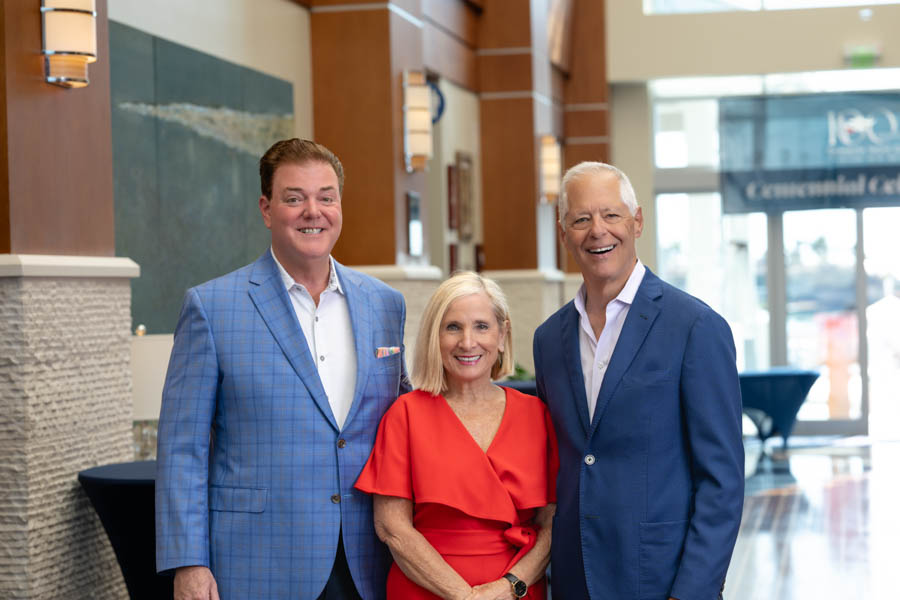
“When you get to a place like this and you’re enjoying such an incredible quality of life, I think people feel an obligation to give back to their community,” says the immediate past Chair and current President of the Foundation, Roy Grossman. The range of causes supported is wide, spanning from animal welfare and children’s well-being to environmental issues. However, the past two years have seen a notable emphasis on youth mental health. Recent grant recipients include organizations such as The Florida Center for Early Childhood, Children First, SPARCC, The Payton Wright Foundation, Project 180 and Teen Court of Sarasota. “We have a voting process with two categories for support,” explains Grossman. “One focuses on mental health, while the other allows members to nominate any cause they feel passionate about, provided it passes our thorough vetting process.” Last year, the youth groups built a life-size playhouse, which was donated to Harvest House for homeless families. “From stuffing backpacks for needy children to cooking and personally delivering meals to homes to helping pets of families in need,” says Feltz, “The members of SYC Cares are teaching the next generation the value of philanthropy.”
To learn more visit sarasotayachtclub.org
180 Skate
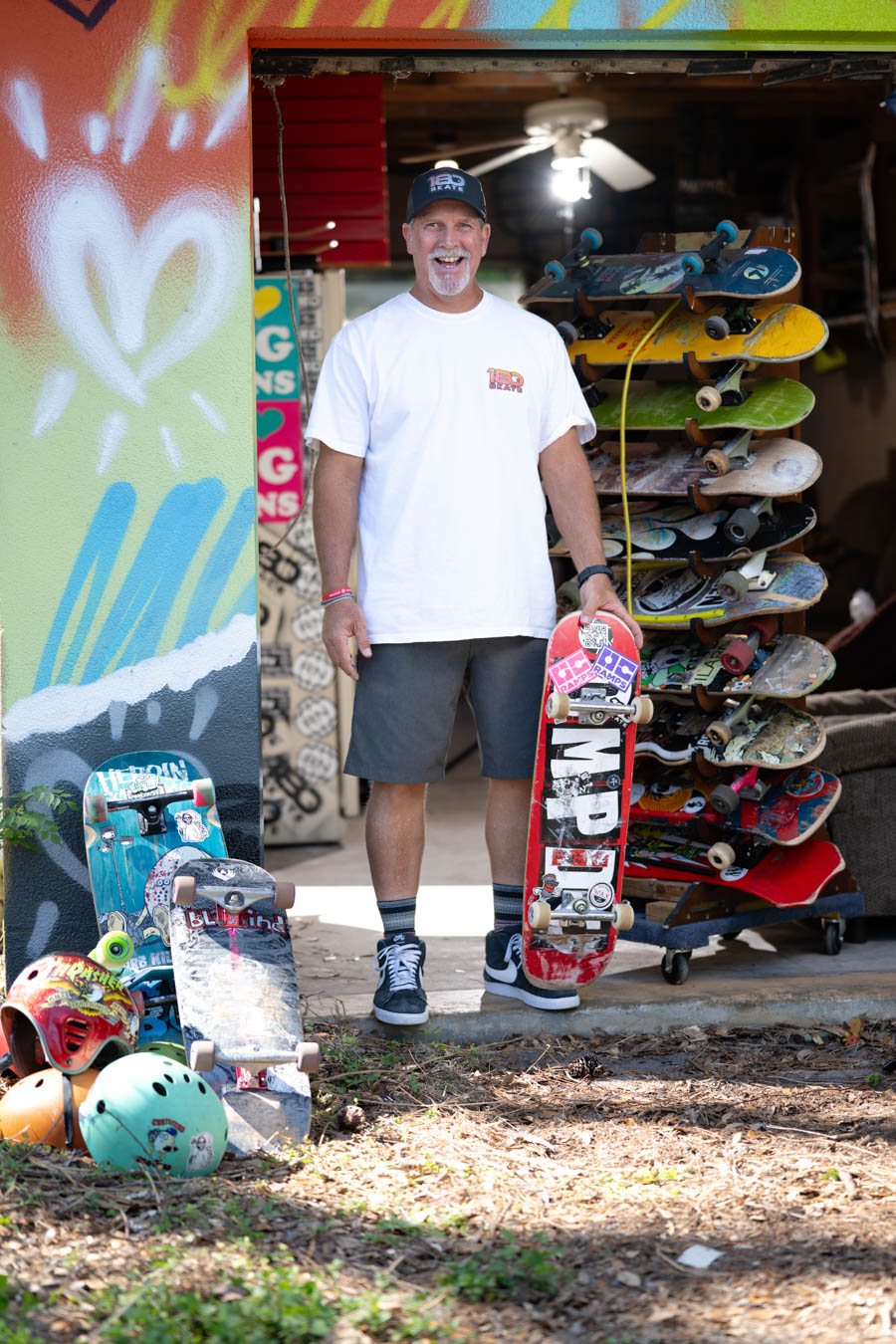
Founded in 2013 by Sarasota native Tim Storck, 180 Skate is a 501(c)(3) non-profit, faith-based organization dedicated to creating a safe and inclusive space for kids to connect, skate and grow. The inspiration for 180 Skate came when Storck, serving as youth director at First Baptist Church, noticed kids skating by the church. Seizing the opportunity to engage with them, he set up a few ramps in the church parking lot and invited them to skate and stay for youth group. As more kids showed up, Storck expanded the vision and built a small indoor skatepark above the church gym.
Today, Storck works tirelessly to connect with local youth through a variety of programs, including skate trips, contests and skate camps. His mission is clear: to offer a positive, welcoming environment where kids from all backgrounds can skate, learn and thrive. In addition to skateboarding events, the organization hosts after-school programs, summer camps, girls’ meet-ups and various community outreach initiatives.
Professional skateboarder Jake Illardi—someone who Storck has known for years—often volunteers at the camps, offering lessons and mentorship when he’s in town. Gymnast Olivia Torres leads the girls’ division, bringing her expertise to after-school programs and summer camps. Storck says, “Whenever there’s a school break, we run camps for kids as young as four up to 13 years old. Many of those campers continue to stay on after age 13 by volunteering and mentoring the younger kids.”
With a strong belief in giving back, 180 Skate relies on donations to fund its programs. In turn, they support organizations like One More Child, Guardian Angels and Suncoast Remake Learning Days, running skate-based activities at community festivals and events. Storck remembers the excitement when the local community learned that Jake Illardi had competed in the Olympics. “Everyone at the church had watched Jake grow up, so seeing him achieve something incredible like that was very uplifting for the whole community,” he says. “We often hear from parents who didn’t realize the impact skateboarding would have on their kids—it’s been transformative for so many people.”
Through skateboarding, Storck has built a bridge to reach young people who might otherwise be overlooked. “I frequently get kids who want to volunteer, and their parents will say things like, ‘He was on drugs, he’s had struggles,’ but I tell them, ‘It’s okay, we’ll work through it together.’” 180 Skate continues to provide opportunities for kids to grow, learn and skate. To help fund these efforts, donations are always appreciated, and a link is available on their website to support the purchase of new equipment, protective gear and continued community outreach.
To learn more visit 180skate.org
FUNducation
FUNducation is a 501(c)(3) nonprofit dedicated to inspiring and empowering the next generation of innovators through education in science, technology, engineering, arts and mathematics (STEAM). The organization achieves this by offering hands-on programs that introduce young people to various STEAM career possibilities, giving those who are uncertain about their future careers the chance to explore and engage with different STEAM fields. With a range of engaging programs, they are making a big difference for future engineers, coders and scientists—especially for kids from underrepresented groups.
Executive Director, Neirda Thompson-Pemberton, says that while other programs may focus on STEM learning, FUNducation includes the A for arts. “As one of my mentors used to say, ‘Nobody wants an ugly toaster. You want a toaster that works but also fits with the kitchen motif’ so we do include arts,” she explains. “We want to expose and engage our kids and hopefully inspire them to go into STEAM fields when they grow up because we are falling behind as a nation. We’re graduating fewer and fewer engineers, mathematicians and scientists. For me, those careers are the backbone of innovation but unfortunately, our kids are afraid of them because of the math and science aspect. So with FUNducation we are putting the fun in education, where we find more engaging ways to learn. We call it educational espionage—the kids are having so much fun they don’t realize that we’ve just taught them something.”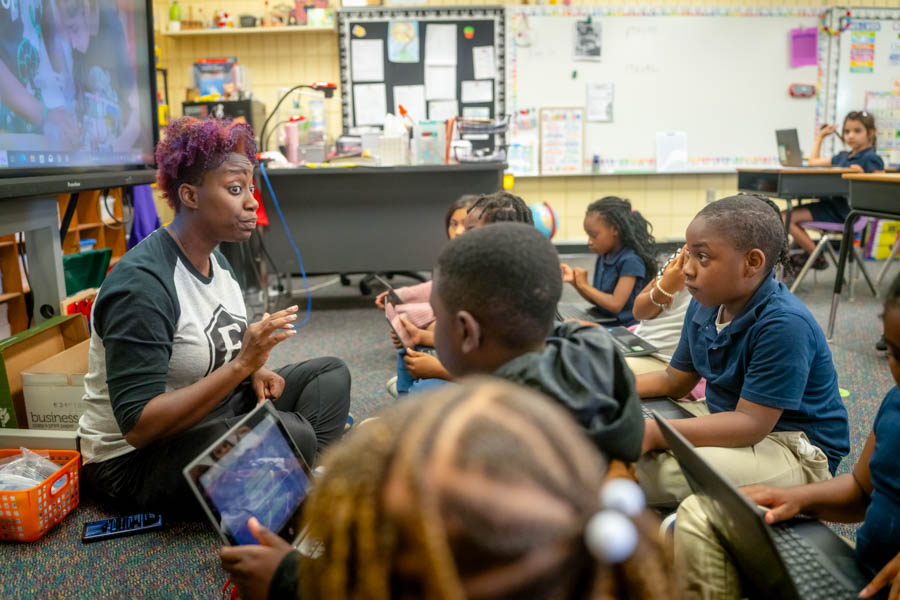
Thompson-Pemberton started her career in civil engineering immediately after grad school. She also volunteered, during that time, in outreach programs working with children. During these sessions, she would often ask the kids if they knew what an engineer was. Nobody was ever able to answer. Surprised by this, she took the time to explain, sparking their interest—at least until they learned about the math and science involved. “That’s when you lose the room,” she says. “And that’s when the passion inside me started. I knew I had to find a way to connect with these kids.” FUNducation, which started in 2019, offers HADO Events (active eSports that use augmented reality tech and motion sensors), Lego League, Digital Literacy and many other events throughout the year to children ranging from elementary school up to high school. They also have project-based internships and volunteer opportunities for college students. And what began as a passion project for Thompson-Pemberton has now evolved into a nonprofit organization that continues to grow each year, reaching and impacting more children. “Our board includes volunteers such as a retired electrical engineer and a statistician from the University of Tampa. We’ve been very intentional about ensuring our board represents the mission we’re striving to achieve,” she explains. “We partner with schools, community organizations, and families. We have programs in schools and collaborate with the Department of Juvenile Justice.”
The organization is 50 to 55% grant-funded and the Manatee Community Foundation (MCF) has been a supporter from the beginning. “When someone says STEM or Steam, MCF is kind enough to steer them toward our group. We’ve gotten some donors that way, too, which has been amazing,” adds Thompson-Pemberton. While the organization serves all children, Thompson-Pemberton, a black, female, Haitian-American engineer, emphasizes the need to inspire underserved communities, especially girls and children of color. “I call myself a ‘chocolate unicorn’ because it’s rare to see my combination in engineering,” she says. “Sadly, we’re still seeing girls walk out of rooms dominated by boys. It’s 2025, and we’re still dealing with that. While we target all kids to build a skilled workforce, we focus on creating a more diverse pipeline, especially for underserved communities.”
To learn more visit:funducation.org




